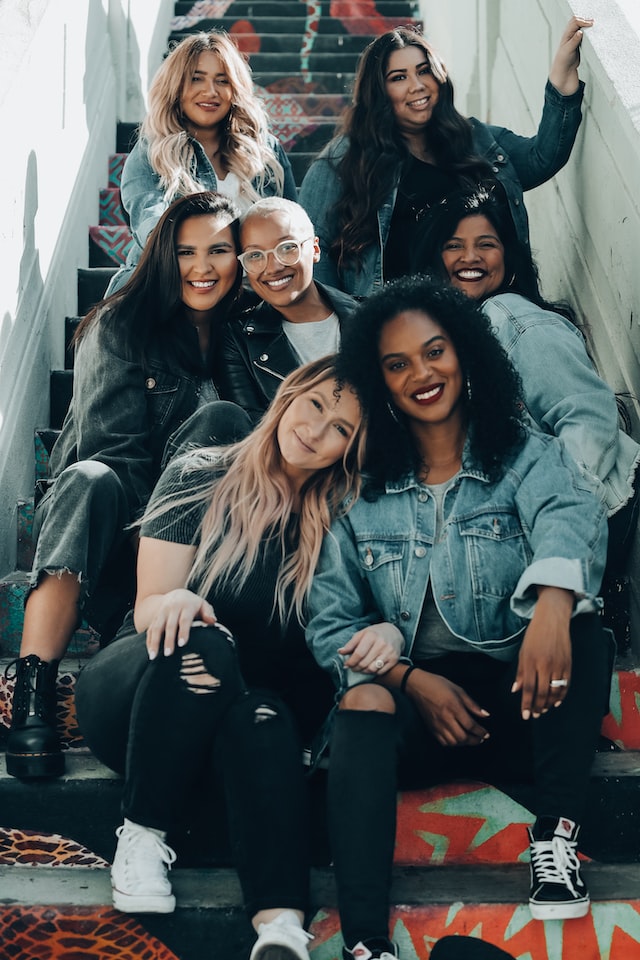You just moved to a new city. All your friends are getting married or having kids. You retired. You got divorced. You’ve outgrown your childhood friends. You’ve been clinging to your spouse as your only friend and it’s making you lonely. There are many reasons why you might need to make new friends—and if you don’t need to make them now, you will at some point. Here, I’ll share some of the secrets in a step-by-step guide to how to make friends as an adult.
Assume People Like You
Something surprising I learned while studying the science of friendship is that people who fear rejection the most are (unknowingly) most rejecting of others. Why?
Research finds that people who assume they’ll be rejected (when circumstances are ambiguous—like when someone is quieter than usual) tend to withdraw and become cold, ultimately pushing others away and willing the rejection they fear.
When researchers, however, told people they’d be accepted when entering a group (even when this wasn’t true), they shared more, disagreed less, and were more positive—ultimately making the premonition come true.
Danu Anthony Stinson, a psychology professor at the University of Waterloo, and her colleagues remarked that “if people expect acceptance, they will behave warmly, which in turn will lead other people to accept them; if they expect rejection, they will behave coldly, which will lead to less acceptance.”
So the more you assume people like you, the friendlier you’ll be, and the more they actually will. And I promise you won’t be deluded by assuming this. According to research on the liking gap, when strangers interacted, they later underestimated how liked they are by one another. This underestimation is even more pronounced for self-critical people. So assuming people like you might bring you closer to the truth.
Don’t Wait for Friendships to Happen Organically
I met a woman who was remarkably friendly and asked her how she became that way. She told me her mother always told her “everybody wants to be your friend; they’re just waiting for you to initiate.” It’s true. You may think everyone already has their friends, but research shows we’re lonelier than ever before.
So many of us are waiting for someone else to initiate with us, but according to one study, when people viewed friendship as happening without effort, they were lonelier years later. When they viewed friendship as taking effort, they were less lonely.
Pursue a Hobby in a Group
Rebecca G. Adams, a sociologist, remarked that friendships happen organically when we have repeated unplanned interactions and shared vulnerability. Unfortunately, as adults, we rarely experience these ingredients like we did as kids—playing at recess and schmoozing at lunch. Sure, we see our colleagues day after day, but workplaces aren’t known for fostering vulnerability.
As adults, we have to recreate this infrastructure. We can do so by pursuing our favorite hobby in a community. You can join a hiking, running, or improv group, a book club, a language or meditation class, or a kickball league.
Overcome Covert and Overt Avoidance
So you picked your group. You’re doing great! I once thought showing up was all it took, but as they say in the infomercials: wait, there’s more.
If you’ve shown up, you’ve overcome overt avoidance: when we stay home because we’re too afraid. Now you must overcome covert avoidance, which occurs when we show up physically but check out mentally.
Covert avoidance manifests as diddling on your phone or chatting with the one person you already know. To overcome it, you must introduce yourself to others, “Hey. My name is_______. How long have you been coming to this [event]? How do you like it?”
I know: that sounds scary. But remember—assume they like you and it won’t be.
Keep Showing Up
So, you showed up to the group once and it was… awkward. You may be ready to run home, immerse yourself in reality television, and decide watching someone heave their cocktail at an unsuspecting victim has become more important than making friends. Such is life.
But, before you do, you should know about the mere exposure effect, which describes our unconscious tendency to like people more when they are familiar to us. In one study, researchers had women show up at a psychology lecture for a varying number of classes: 0, 5, 10, or 15. At the end of the semester, students didn’t recognize any of the women. But they liked the woman most who showed up to the most classes; she was liked 20 percent more than the woman who didn’t show up to any.
According to the mere exposure effect, interactions are inherently awkward at first. We’re weary of each other. There’s no trust built. We can’t really be sure someone won’t pour their martini all over us. Forgive me. I watch too much reality television.
But over time, people in the group will like us more and we’ll like them more. Even if (according to the study) we don’t even say anything to them. So keep showing up, and keep introducing yourself. It’ll pay off.
Generate Exclusivity
One vital feature of friendship is exclusivity: You have experiences with one person that you don’t have with others. Find someone in your group to start generating exclusivity with by asking them to meet up before or after next week’s group. Your unique shared experience will sprout early buds of connection.
Exclusivity also fosters friendship because it “repots” the connection. Ryan Hubbard, the founder of the Kitestring project, developed this term to describe how we can deepen friendship by varying the settings in which we interact. For example, your work friend becomes your real friend when you hang out at happy hour. Studies link repotting to deepening intimacy.
Show People How Much You Like Them
When I mention the importance of telling people you like them to make friends, people gawk. Maybe it’s clingy? Maybe it’s coming on too strong? But, maybe it’s exactly what all of us lonely and insecure souls need to hear.
One study found the number one feature people look for in a friend is someone who likes and values them. According to the theory of inferred attraction, people like people who they think like them. When strangers interacted, one study found, how much one liked the other depended on how liked they presumed they were. When researchers followed budding friendship pairs for months, do you know which pairs endured? Those in which people expressed affection for one another.
So practice revealing to people that you like them. You can tell them how happy you are to hear from them, compliment them, greet them warmly, or share what you like about them or when something they said resonated.
So go out there, find a group, assume they like you, show them you like them, make the ask (“let’s hang out next week before running club?”), and make the friends you’ve been waiting for.
This content was adapted from my book Platonic: How the Science of Attachment Can Help You Make and Keep Friends.



